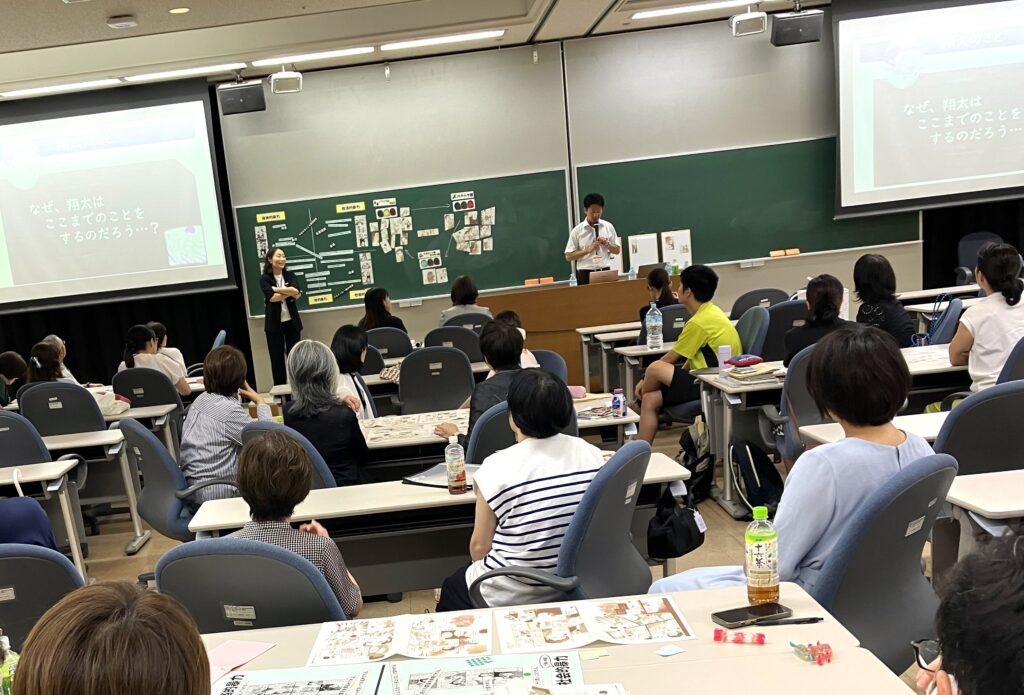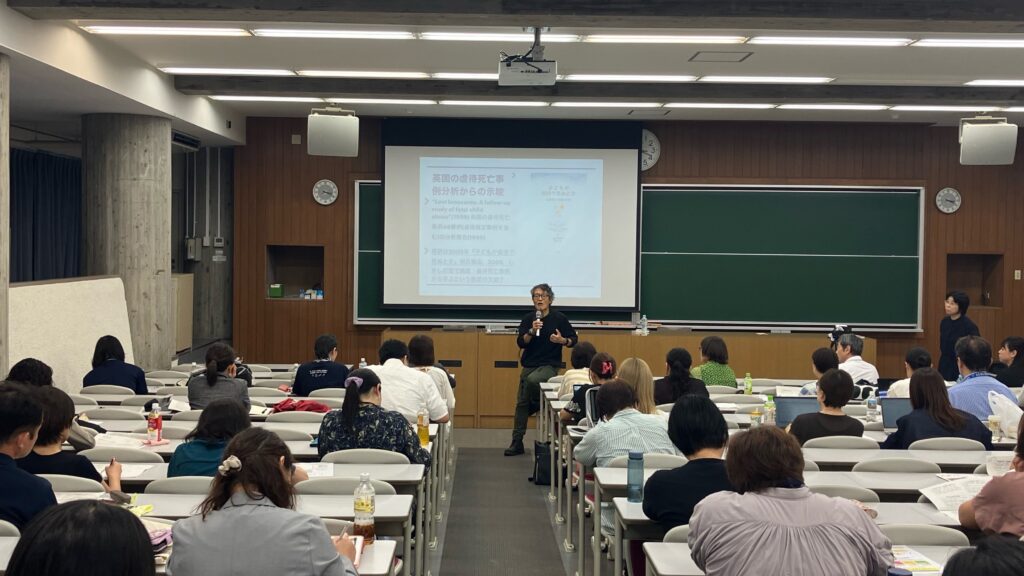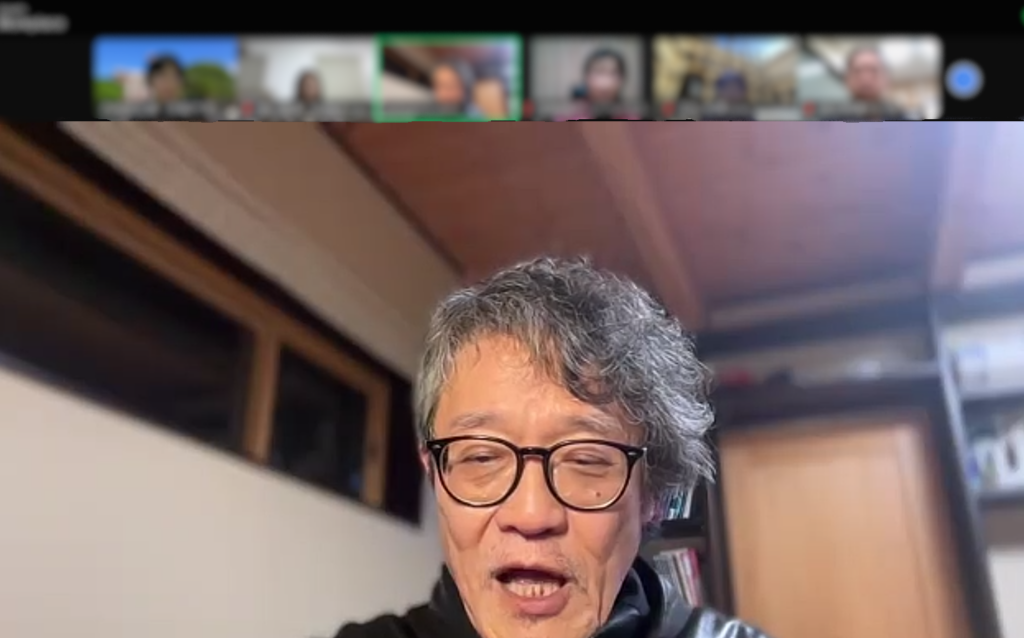On Saturday, March 22, 2025,Research, development and dissemination of educational approaches that overcome the cycle of poverty, inequality and abuse" project's fourth "Living Education" training session was held.
At this training session, a workshop was held by teachers from Tajima Minami Elementary and Junior High School, and a lecture was given on the importance of life story work and how to proceed with it. In this article, we will introduce the contents and the situation of the training session.
opening
First, project representative Kanae Nishioka gave a talk on the overview of "Living Education" and the project at SMBC Kyoto University Studio.
Workshop 1: "We were all babies once"
Ms. Misako Bessho and Ms. Azusa Tanaka from Tajima Minami Elementary and Junior High School conducted a workshop to learn the lesson "We were all babies once upon a time." This program is aimed at second graders at Tajima Minami Elementary and Junior High School.
The lesson begins with a lesson on "personal space," where children learn about the appropriate distance to keep from other people. After that, the teacher introduces the "0 cm distance" to encourage children to look at the baby and its mother, and explains the process of the baby's development from birth to its birth. The actual lesson is held over multiple sessions, and is sprinkled with ideas to attract the children, such as comparing human and animal babies and having them experience being pregnant. Ms. Bessho spoke about the children's behavior during the class.
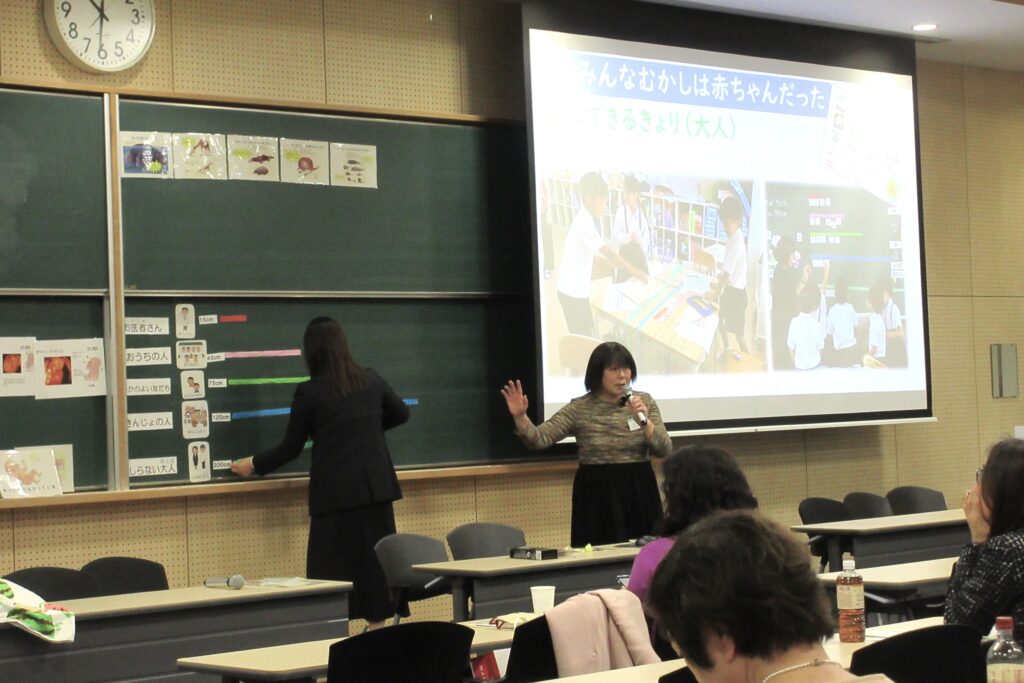
In classes learning about the baby's development, the first year after birth is divided into several periods, and we consider what a baby will be able to do in each period. In the workshop, participants experienced the activities that children actually do in class. Using cards with things that babies can do, such as "rolling over" and "starting to grab onto something," participants discussed in groups the order and timing of what they will be able to do (*1).
(*1) In carrying out this workshop, we obtained permission from Suzuki Mamoru and Komine Shoten to use images from the picture book "We Were All Babies" (2008). We would like to express our gratitude here.
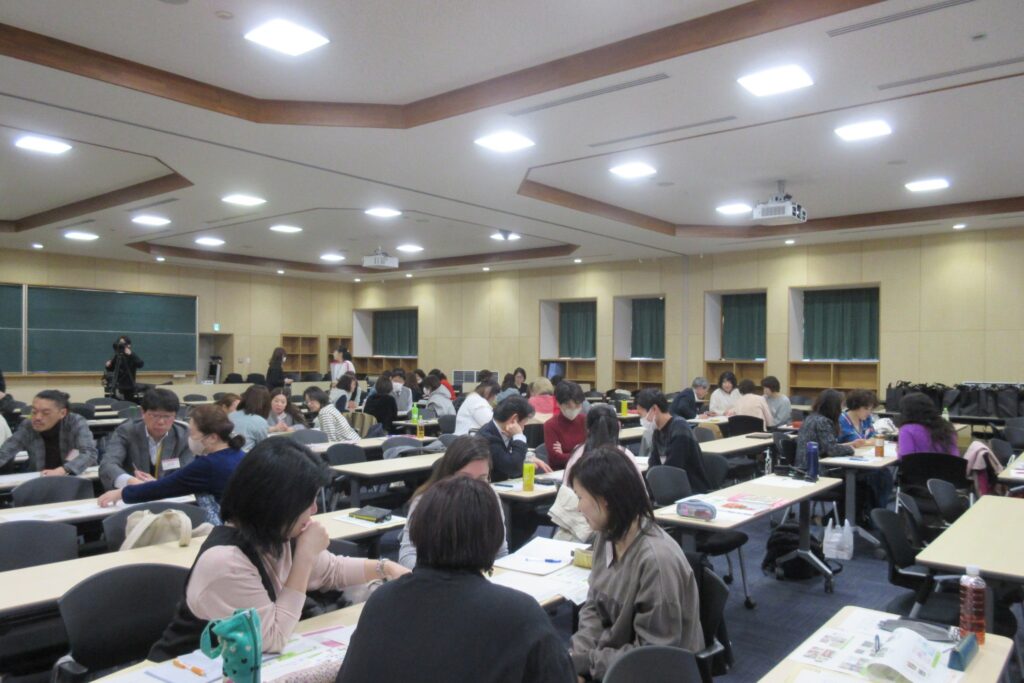
In this program, children learn that newborn babies grow up with the care and cuddling of many people. Dr. Bessho spoke of her desire to convey to children that she herself was raised with the utmost care and protection from those around her.
Lecture: The Importance of Life Story Work and How to Proceed
Professor Mari Saimura, former professor at the Department of Psychology and Welfare at Tezukayama University, gave a lecture on life story work.
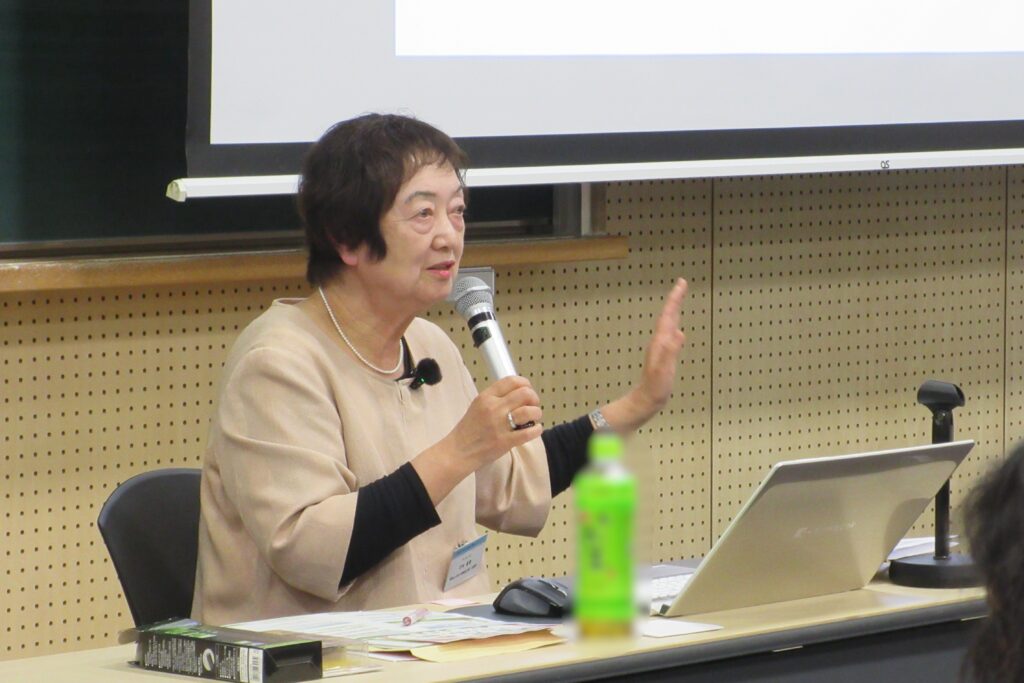
According to Dr. Saimura, life story work is "a process of providing a forum for discussion so that questions such as, who were you born from? Why are you here now? What will happen to you in the future? can be incorporated into a child's life" (from Dr. Saimura's lecture materials).
Dr. Saimura has been practicing life story work with children who live away from their parents in institutions or foster homes. By doing life story work, children can understand their upbringing and the reason they live away from their families, and come to terms with their current situation. This increases their self-esteem and allows them to think about the future.
Professor Saimura incorporated some work into his lecture, and conducted the session in a way that enabled participants to understand life story work both intellectually and intuitively.
Workshop 2: "Hello Work for 10-Year-Olds"
Following Workshop 1, Professor Bessho and Professor Tanaka conducted a workshop on "10-year-old Hello Work," which is practiced with 4th grade elementary school students. The program incorporates the perspective of life story work into "education for living," and the content allows children to face their present, past, and future selves.
The class begins by explaining that there are many different jobs out there, and that a "resume" is necessary to get a job. The children are asked to write their history to date, their strengths, and their current worries as part of their "resume." At this time, the teachers tell the children, "You don't have to write anything you don't want to write," as they apparently make an effort to be considerate of children who have experienced trauma in the past. The class then develops into pairs, where they have an "interview" in which they discuss the contents of their resumes, and write each other messages about their worries. Participants in this training session also experienced writing a resume and having an interview.
In lessons designed to help children envision their future selves, an auction is held for "desired skills." Skills up for auction are those that children think will be useful to their future selves, such as "the ability to express one's opinion" and "the ability to follow rules." Each child is given ten chips and can bid on up to three skills they would like to acquire for their future selves. The person who bids the most chips will obtain that skill and will also have to explain why. Participants also participated in the auction at the workshop, which was very exciting.
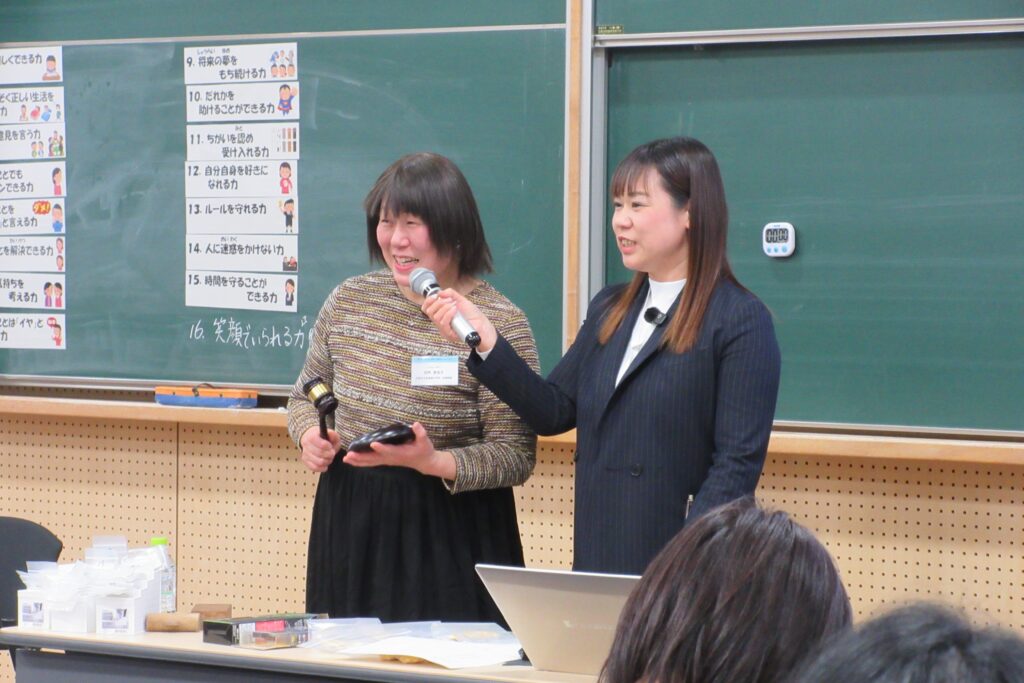
At the end of the session, the teachers shared stories about the children they have worked with and their thoughts on creating this program.
Nearly 50 people participated in this training session, and it was a lively event until the very end. We plan to hold more "Living Education" training sessions in the future as part of the SMBC Kyoto University Studio project. If you are interested, please check the event information.
